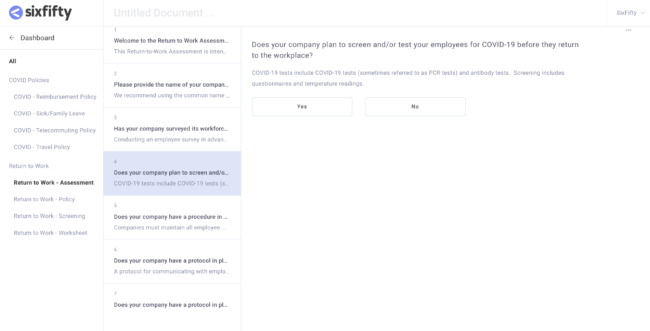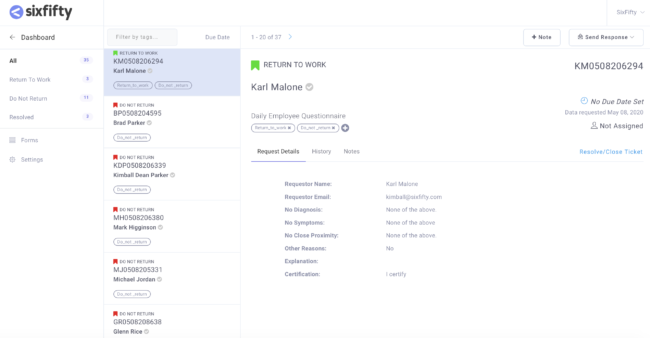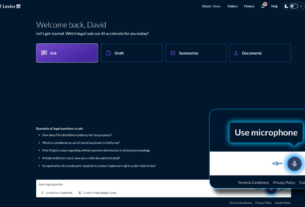As some states begin to loosen stay-at-home restrictions and allow certain businesses to reopen, and other states prepare to do so, employers face a difficult balancing act between reopening their workplaces and ensuring the safety of their employees and customers.
In the early days of the pandemic, I wrote about the launch of a tool to help U.S. businesses create essential policies related to working from home. Now, the developer of that tool, SixFifty, the technology subsidiary of the law firm Wilson Sonsini Goodrich & Rosati, is releasing a tool to help companies safely transition their employees back to work after stay-at-home orders expire.
Like all SixFifty products, the Return-to-Work Toolset was developed in consultation with attorneys at Wilson Sonsini, in this case attorneys in the employment group. Two other companies were also involved in the development — the Sequoia Consulting Group, a human resources consulting company, and One Medical Group, a health care provider.
The toolset includes:
- An assessment to help businesses determine their back-to-workplace readiness.
- Policies to govern how businesses transition their employees back to the office.
- A questionnaire screening system that businesses can use daily to determine who can safely enter the workplace.
“This is possibly the most dangerous HR situation we’ve ever seen in our lifetimes,” Kimball Dean Parker, CEO of SixFifty, told me during a demonstration of the tool yesterday. “It is dangerous from a medical point of view, and it is dangerous from a legal point of view.”
This tool will help businesses take the steps necessary to help reduce the risks of COVID-19 spreading in the workplace, Parker said.
The tool’s assessment component leads a company through a series of questions regarding the steps it needs to take to prepare for employees’ return to the workplace and then produces an assessment that a business can download regarding its back-to-work readiness.
The assessment asks about such issues as whether the company intends to screen employees before they return and, if so, how, or whether it will stagger working hours or require protective wear.
Using the answers the company gave to the assessment questions, the tool also produces a customized return-to-work policy that provides employees and managers with specific guidance. The company can ask employees to sign this to acknowledge their receipt of the policy.
The tool also includes an online questionnaire system to help perform daily screening of employees for COVID-19. Employees would be required to complete the online questionnaire before coming to work each day, and it would automatically instruct them as to whether they may come in.
Everything in the questionnaire system is logged so that employers have a record of their efforts to keep potentially infected employees from infecting others at work.
“Employers need to take into account guidance and requirements from all levels of government, which are in flux and may vary by location, in sculpting their return-to-work strategy,” said Marina Tsatalis, employment law partner at Wilson Sonsini. “We are working with SixFifty to prepare the policies and assessments and to keep them updated and current as the legal landscape continues to evolve in this area.”
While an “off-the-shelf” version of the product is available, Parker said that SixFifty will customize any aspect of it to meet an employer’s specific requirements.
Although SixFifty offered its work-from-home policy tool for free, it is charging companies to use its Return-to-Work Toolset. The price will depend on company size and will start at $9,500 (or $4,750 for a non-profit).
For very small companies, Parker said he will work with them on a case-by-case basis to make the product affordable for them.
Parker estimated the cost to obtain similar guidance directly from a law firm could be $50,000. “There’s no template for this,” he said. “There’s never been a return-to-work scenario.”
In addition to the free work-from-home policy tool SixFifty introduced in March, it also released two other free pandemic-related tools. One was a modified version of its Hello Landlord application designed to help tenants with specific COVID-19 issues. The other, Hello Lender, was to help out-of-work homeowners delay paying mortgages.


